
An Israeli judge has cleared Israel’s military of responsibility for the killing of the U.S. peace activist Rachel Corrie. A 23-year-old college student, Corrie was crushed to death by an Israeli army bulldozer in Gaza nine years ago. She was standing in front of a Palestinian home to help prevent its demolition. Today’s ruling came in a wrongful death civil suit brought by Corrie’s family, with the judge rejecting any negligence on the part of the driver and finding that Corrie’s death resulted from “an accident she brought upon herself.” Today’s ruling follows an earlier internal Israeli army investigation that also exonerated the bulldozer drivers. The Corrie family had been seeking a symbolic $1 in damages, as well as legal fees. [includes rush transcript]
Transcript
AMY GOODMAN: An Israeli judge has cleared Israel’s military of responsibility for the killing of U.S. peace activist Rachel Corrie. She was a 23-year-old college student crushed to death by an Israeli army bulldozer in Gaza nine years ago, standing in front of a Palestinian home to help prevent its demolition. Today’s ruling came in a wrongful death civil suit brought by Rachel Corrie’s family, with the judge rejecting any negligence on the part of the driver, finding that Rachel Corrie’s death resulted from, quote, “an accident she brought upon herself.”
To talk more about the verdict, we’re joined by Rachel Corrie’s mother, Cindy Corrie.
We welcome to Democracy Now!, Cindy. You’re in Haifa. Can you respond to the verdict?
CINDY CORRIE: Thank you, Amy. Yes, I’m here, and Craig is here, as well.
AMY GOODMAN: Hi, Craig.
CRAIG CORRIE: Hi.
CINDY CORRIE: We’ve had about six hours, you know, to sit with this latest development. We’ve been very busy talking to a lot of people since then, and a short amount of that time with our attorneys. It was shocking, of course, to sit in court and to hear—hear the verdict this morning. And it was deeply disturbing on a lot of levels, not only because of our quite lengthy journey to get to this point, but also because the judge chose to say that the Israeli military was engaged in a war operation, an act of war—and, by doing so, I think, made this day a very bad day for human rights, all of our human rights, for humanity and for the rule of law, basically disregarding the rights of civilians, the right of nonviolent activists under international law and Israeli law. We charged that Rachel’s right to life and to dignity were violated by what occurred that day. And the judge basically went to a place to say that what the Israeli military did, what militaries do in anything that they determine to be acts of war is legitimate. And so, that’s kind of where we’re left.
AMY GOODMAN: Craig Corrie, your response? Rachel was standing in front of the home of a Palestinian family, preventing its demolition. And what do you want to see happen now?
CRAIG CORRIE: Well, of course, Amy, we’re going to have to review all of our options. I think that this needs to be appealed. Of course it has to be opposed, this sort of thinking. You know, I think you do know that I was in Vietnam in 1970, and strangely enough, I—as a combat engineer, I had some responsibility over bulldozer operations. In the first place, when you talk about—
AMY GOODMAN: We have 15 seconds.
CRAIG CORRIE: I think we have to oppose the idea that a military can do whatever it wants. We have to oppose the idea that there are no civilians in wartime. We know that there are civilians down in Gaza. Gaza is a place under occupation, and it was not a war. We have to oppose there ideas, and we have to oppose it any way we can. And we need the support of American people, we need the support of people around the world to do that. Thanks.
AMY GOODMAN: Well, I want to thank you both very much for being with us, Craig and Cindy Corrie, speaking to us from Haifa.

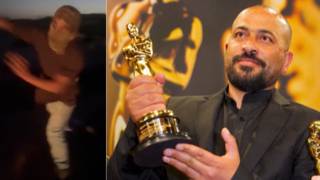
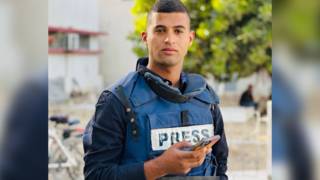
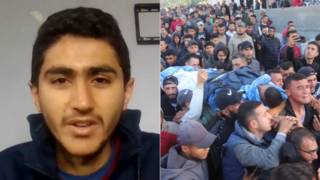
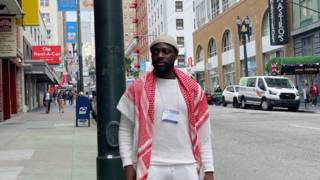





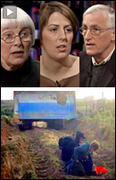
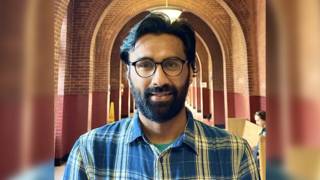
Media Options